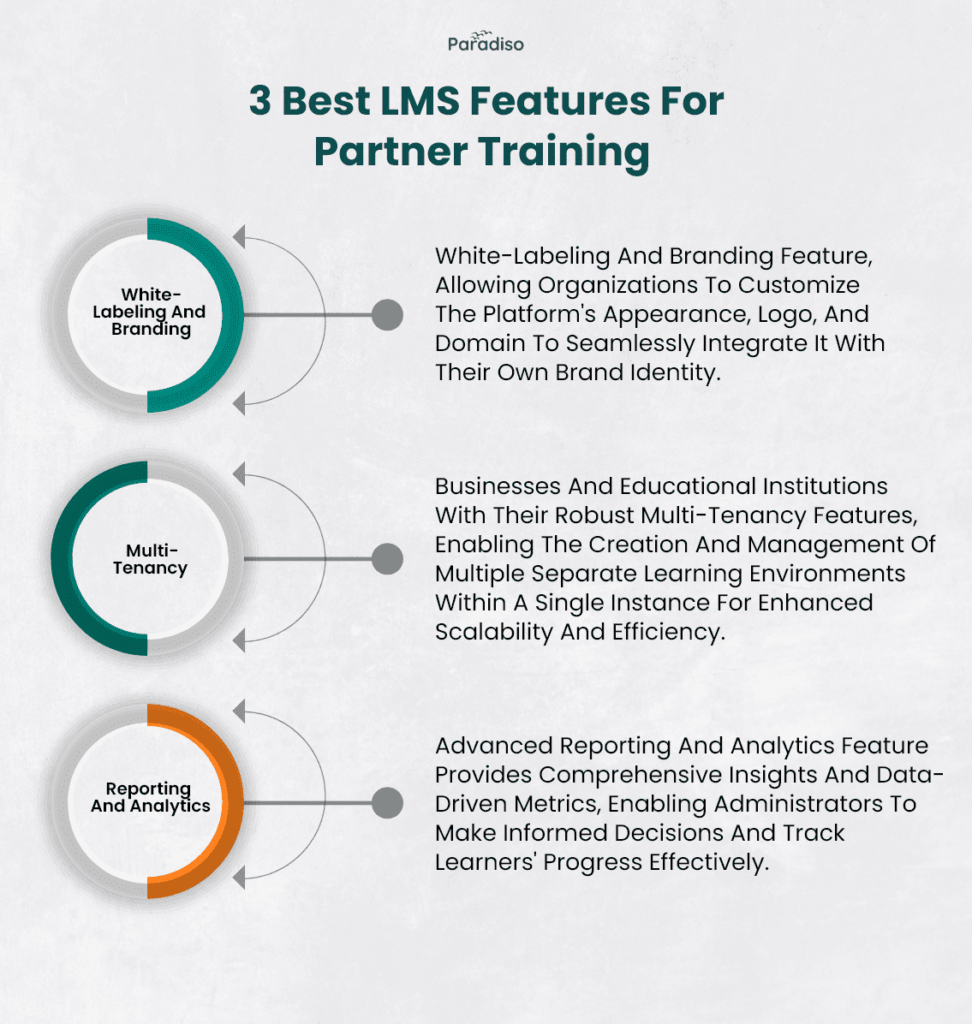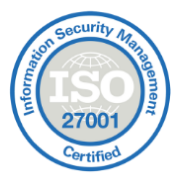In the fast-paced and ever-evolving world of business, strategic partnerships have become an essential component of growth and success. Organizations collaborate with external partners to expand market reach, leverage specialized expertise, and tap into new opportunities. However, ensuring that partners are well-equipped with the knowledge and skills needed to represent the brand effectively can be a challenging endeavor.
This is where a robust Learning Management System (LMS) comes into play. An LMS tailored for partner training can be a game-changer, providing a centralized platform to deliver, track, and optimize learning experiences.
In this blog post, we will delve into the top three LMS features that can revolutionize partner training, enabling businesses to foster stronger partnerships and drive mutual growth.
What is partner training?
Partner training refers to the process of educating and equipping external individuals, organizations, or entities who have established a collaborative relationship with a company or brand. These external entities, known as partners, could include distributors, resellers, dealers, franchisees, affiliates, or any other business associates representing the company’s products or services.
The primary objective of partner training is to ensure that these external stakeholders possess the necessary knowledge, skills, and expertise to effectively represent the brand, its offerings, and its values to the end customers or clients.
Effective partner training is crucial for building a cohesive and well-informed network of collaborators. It goes beyond merely transferring product knowledge, extending to encompassing various aspects such as sales techniques, brand messaging, compliance guidelines, customer support protocols, and even specialized skills unique to the industry or niche.
Partner training plays a pivotal role in aligning the partner’s objectives with the company’s goals, fostering consistency in messaging and service standards, and ultimately contributing to the growth and success of both the company and its partners. By providing partners with the necessary training and support, businesses can strengthen their partnerships, enhance customer experiences, and create a more unified and resilient ecosystem that thrives on shared knowledge and mutual growth.
Top LMS Features for Partner Training
LMS is crucial for partner training as it provides a centralized platform to deliver consistent and standardized training, ensuring partners are well-equipped to represent the brand effectively.
The features, such as a customizable user interface, streamline partner adoption and engagement, while content management systems organize and deliver diverse training materials, enhancing knowledge retention and accessibility for partners. Real-time tracking and reporting enable businesses to identify training gaps and optimize the learning process, driving better partner performance and mutual growth.

White-labeling and Branding
White-labeling and branding are essential LMS features that allow businesses to customize the platform’s appearance and align it with their corporate identity. With white-labeling, companies can remove all references to the LMS provider, creating a seamless, branded experience for partners.
This feature enhances the credibility and trustworthiness of the training platform, making partners feel more connected to the company’s vision and values. By incorporating their logos, colors, and branding elements, businesses can strengthen their brand presence throughout the partner training process, ultimately reinforcing the partner’s association with the company and its offerings.
Multi-tenancy
Multi-tenancy is a pivotal LMS feature that enables businesses to efficiently manage and serve multiple partners on a single, shared platform. This functionality allows each partner to have a unique and secure training environment, personalized with specific training content, user permissions, and reporting capabilities.
With multi-tenancy, organizations can streamline the administration process, reducing overhead costs, and ensuring consistent training experiences for all partners. This feature is particularly valuable for companies with extensive partner networks, as it simplifies the management of various training requirements and helps maintain data privacy and security for each partner.
Reporting and Analytics
Reporting and analytics are indispensable LMS features that provide valuable insights into partner training performance and effectiveness. Through detailed reports and real-time analytics, businesses can track partner progress, course completion rates, and assessment scores. This data empowers organizations to identify areas of strength and improvement, allowing for targeted interventions and adjustments to optimize the training program.
With the ability to measure partner training outcomes, businesses can continuously refine their strategies, ensuring partners receive the knowledge and support needed to excel in their roles. Reporting and analytics are essential tools for driving continuous improvement in partner training initiatives and achieving mutual success.
Enhancing Partner Training with Paradiso LMS Features
Paradiso LMS offers a comprehensive set of features designed to enhance partner training and foster successful collaborations. The top features include:
Content Management System:
Paradiso LMS comes equipped with a robust content management system, enabling easy organization and delivery of various training materials, such as product guides, sales resources, and compliance documents, ensuring partners have access to up-to-date and relevant resources.
Gamification and Engagement Tools:
The inclusion of gamification elements, badges, and leaderboards in Paradiso LMS motivates partners to actively participate in training, fostering engagement and healthy competition among partners.
Communication and Collaboration Tools:
The LMS facilitates seamless communication between partners and the organization, allowing for feedback, discussions, and sharing of best practices. This feature encourages a collaborative learning environment and enhances knowledge exchange among partners.
Mobile Learning Support:
Paradiso LMS offers mobile learning capabilities, enabling partners to access training content on the go, enhancing the flexibility and accessibility of the training program.

















